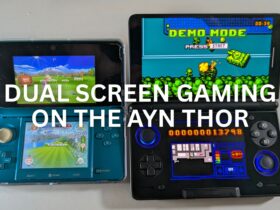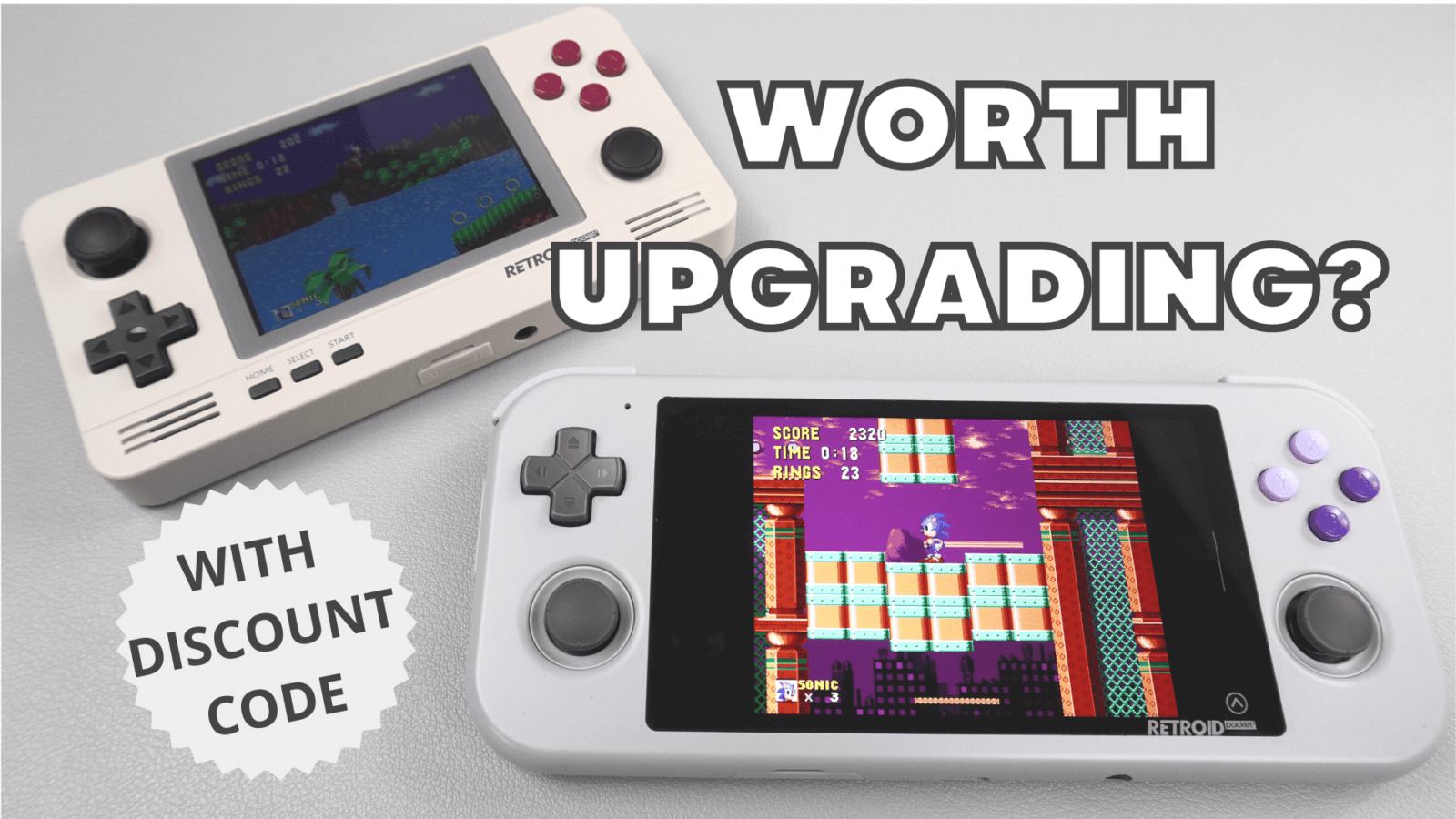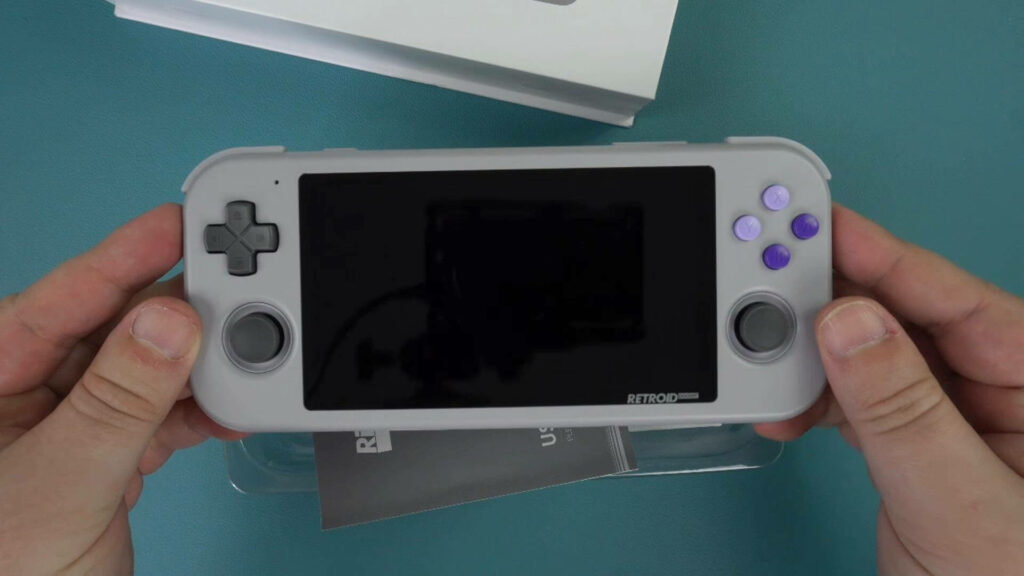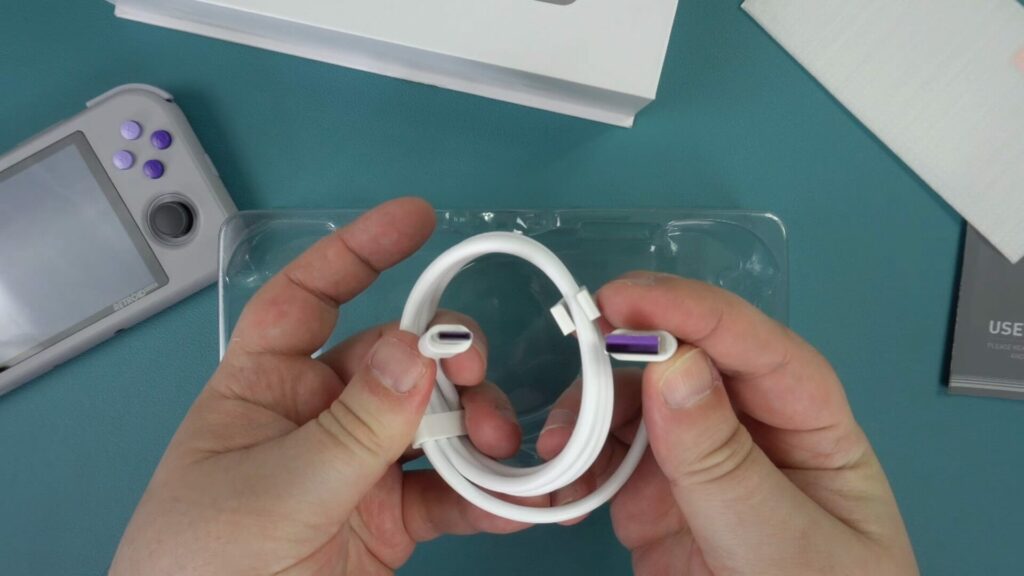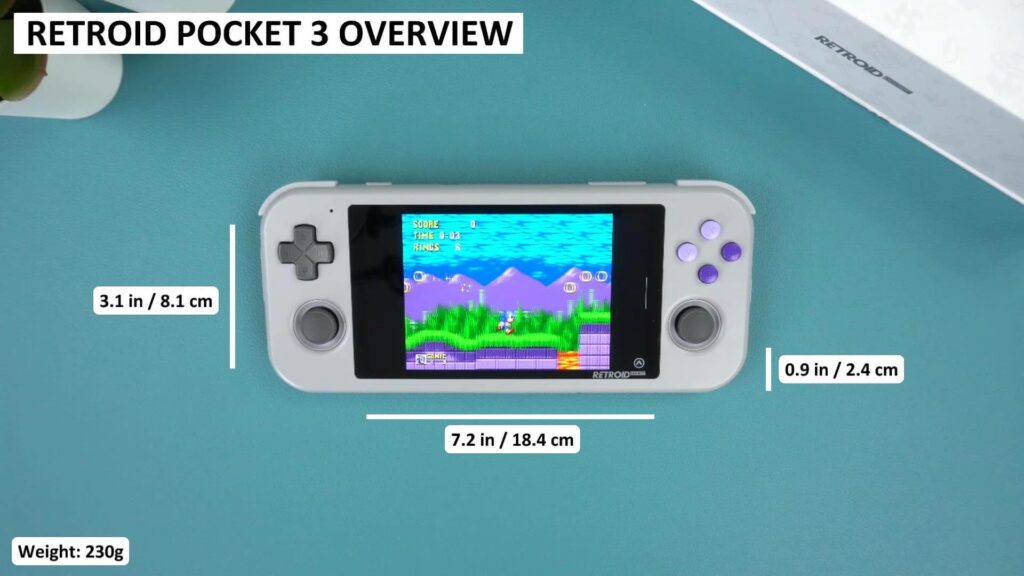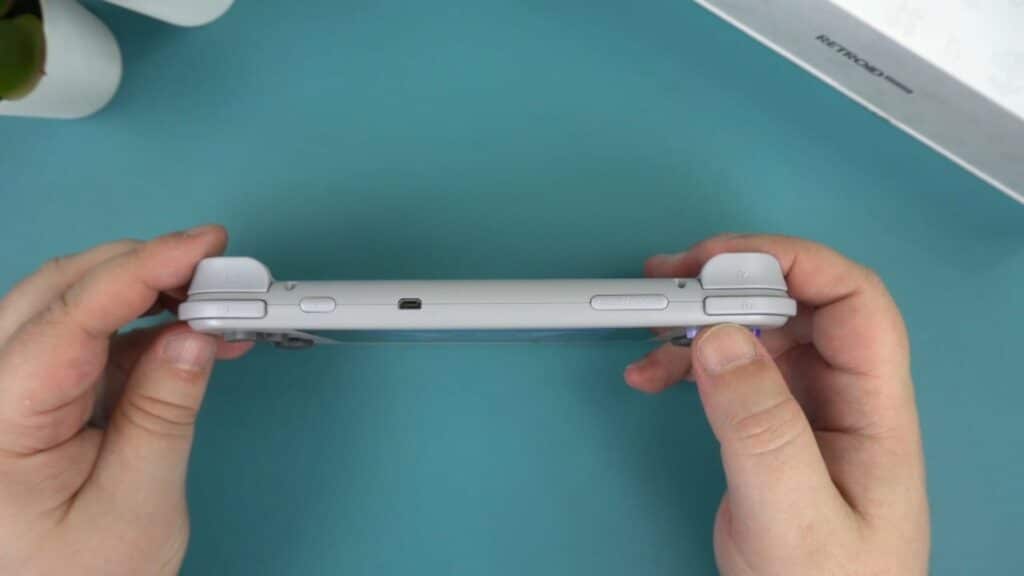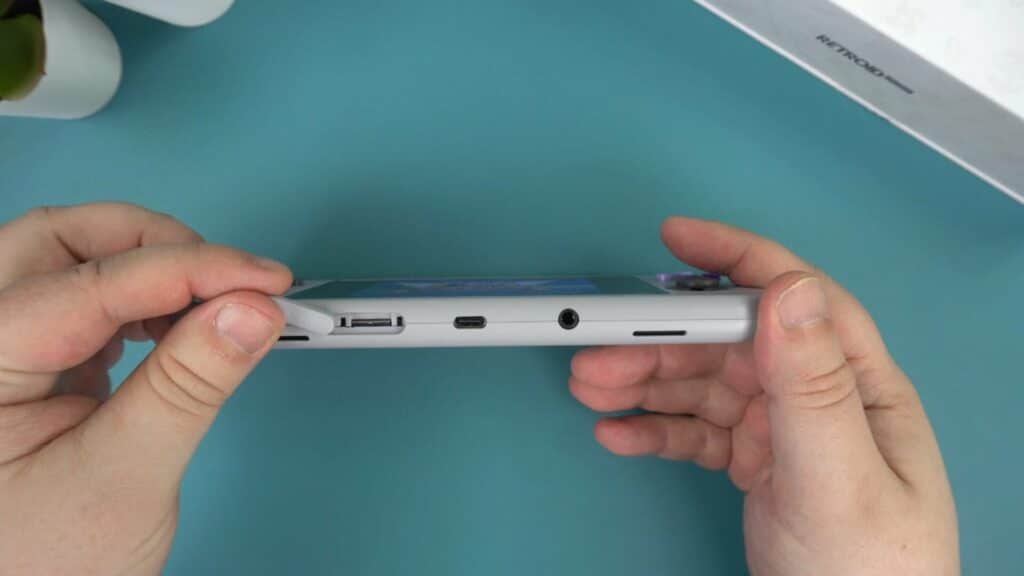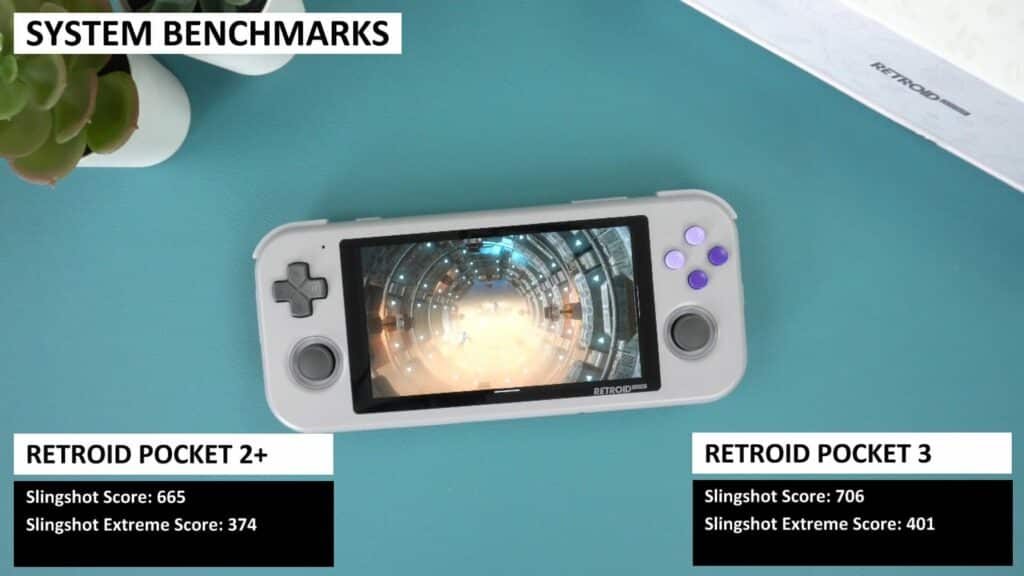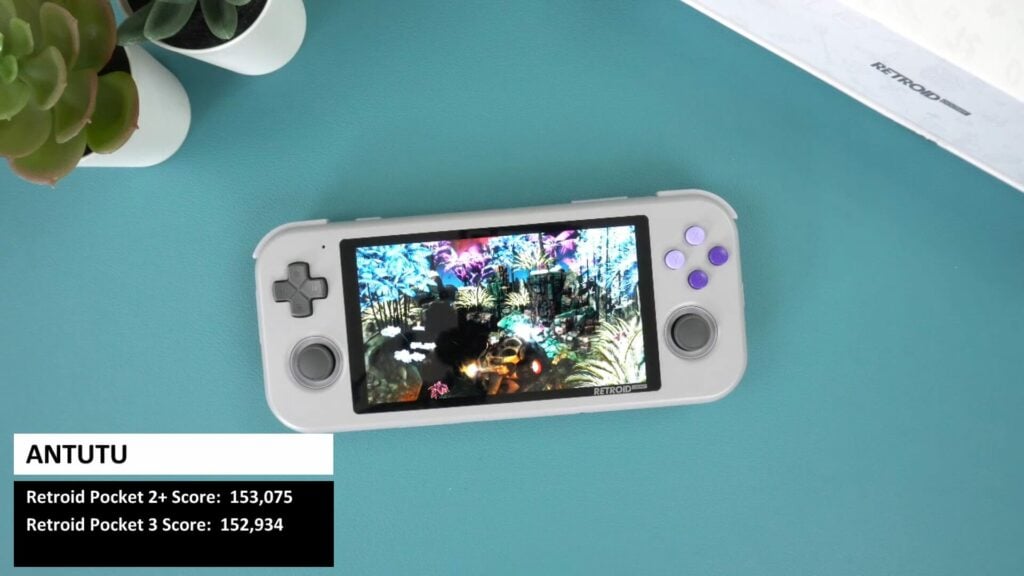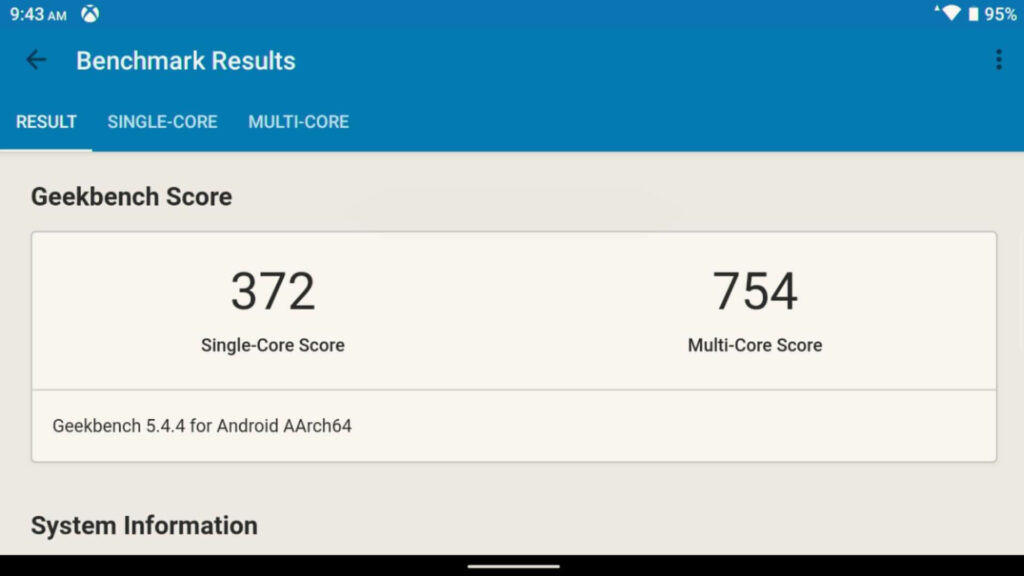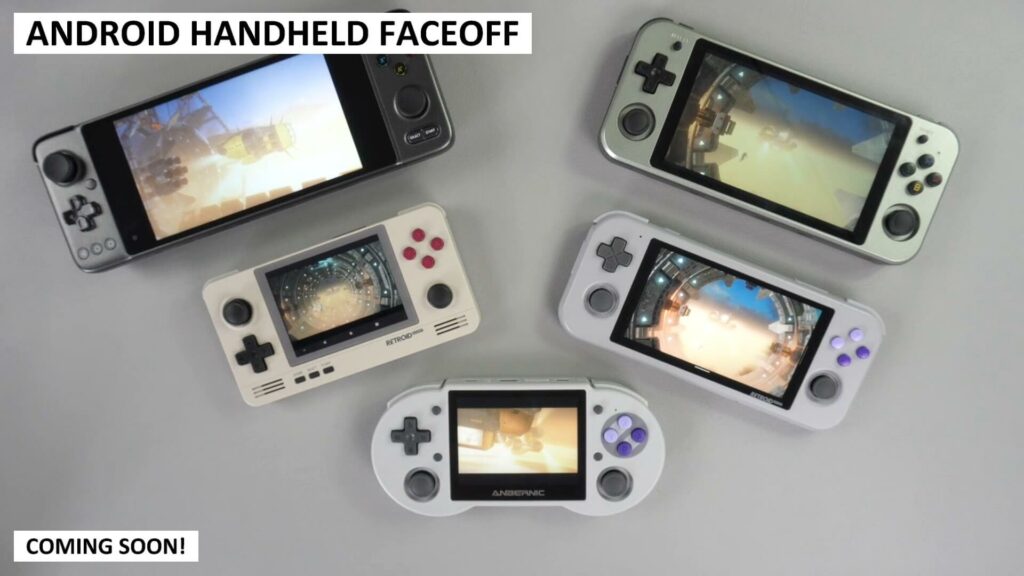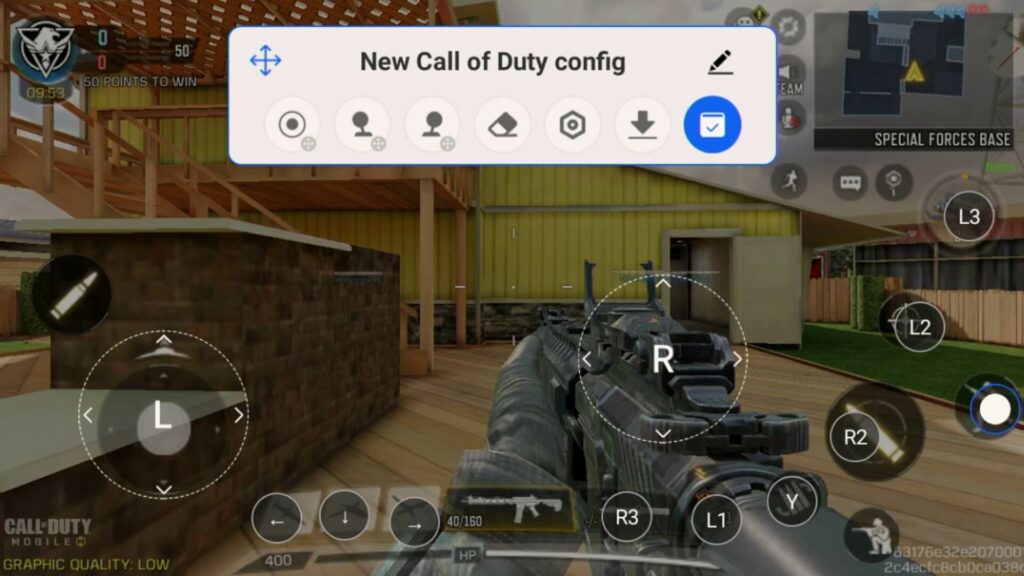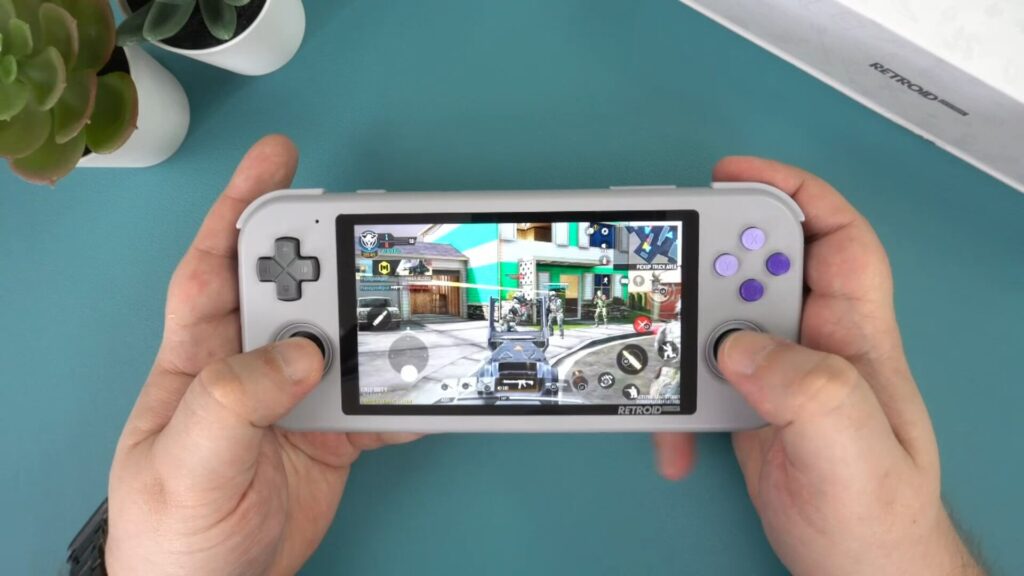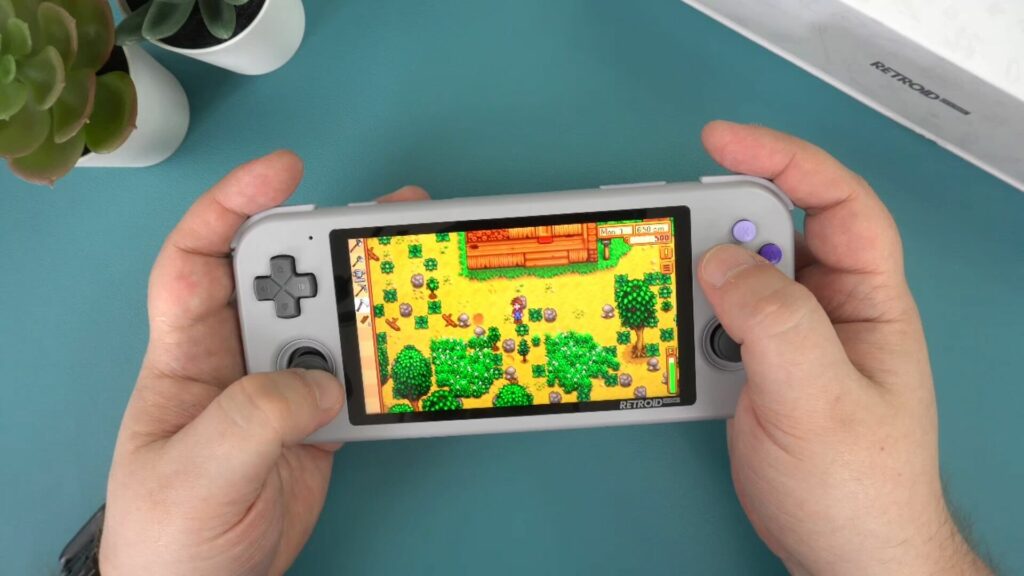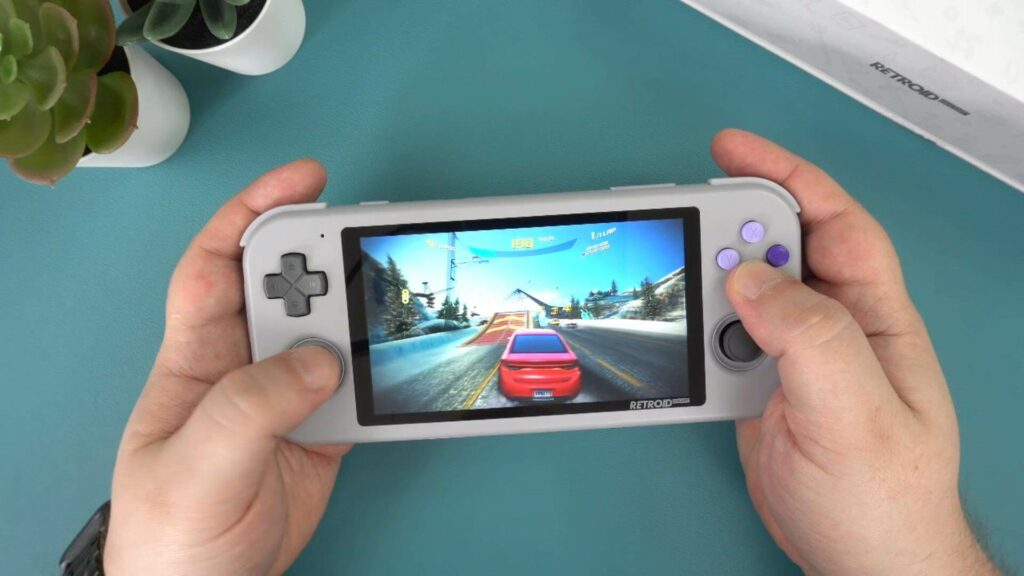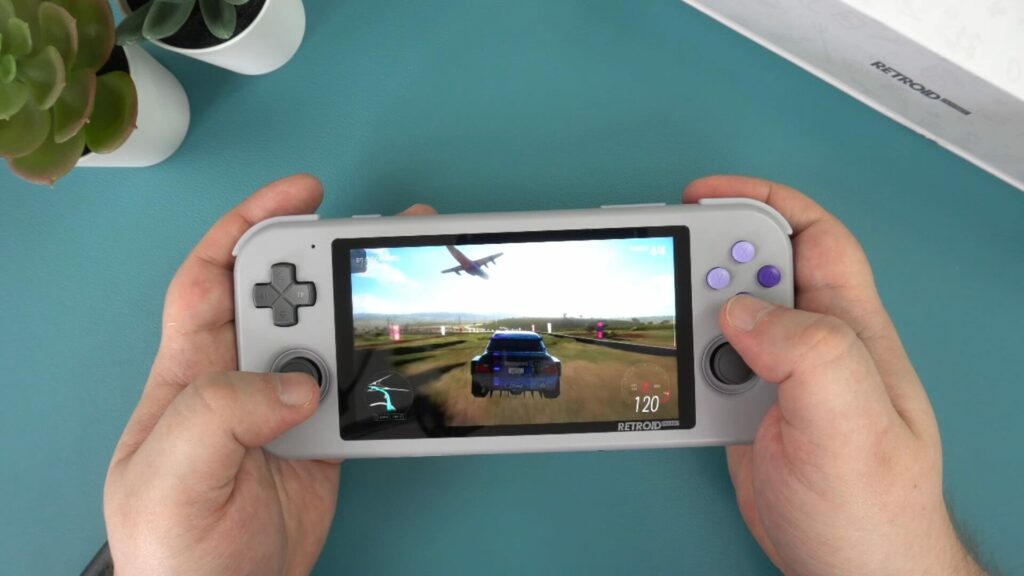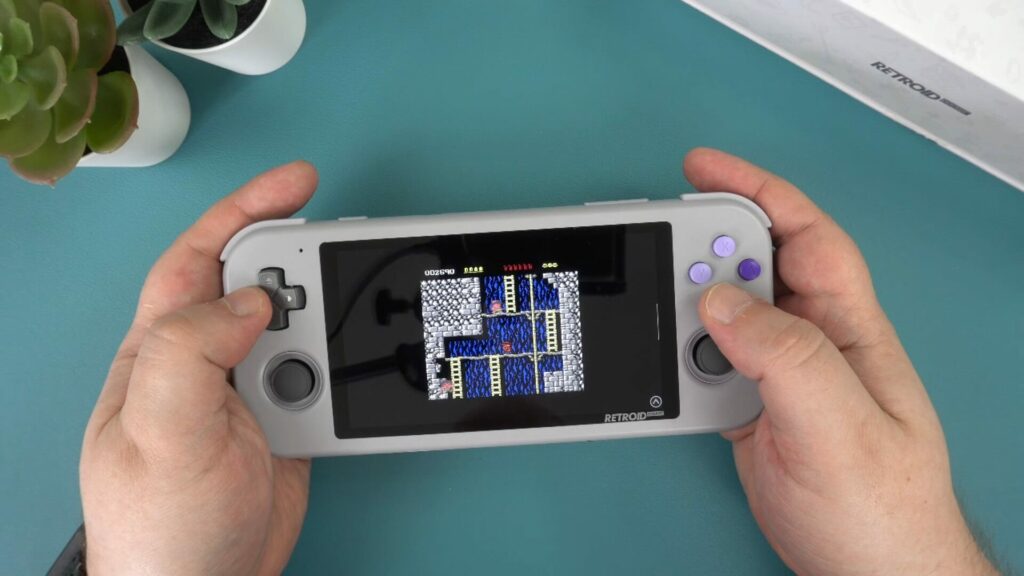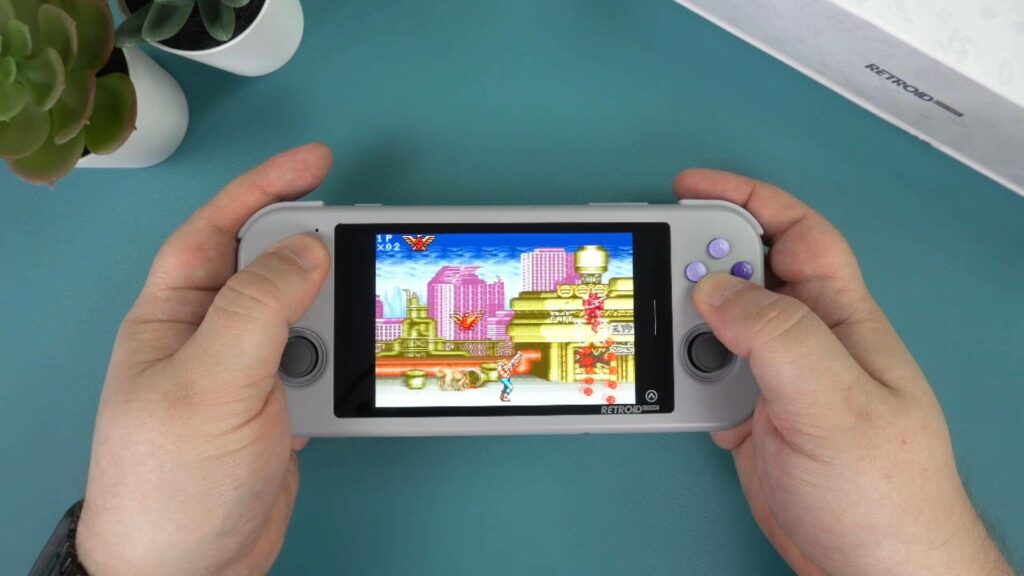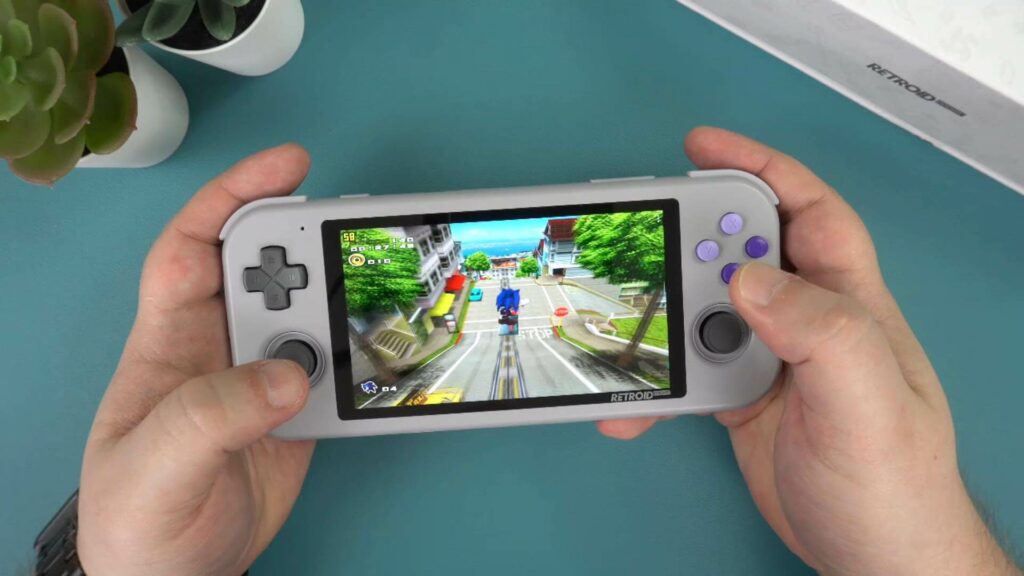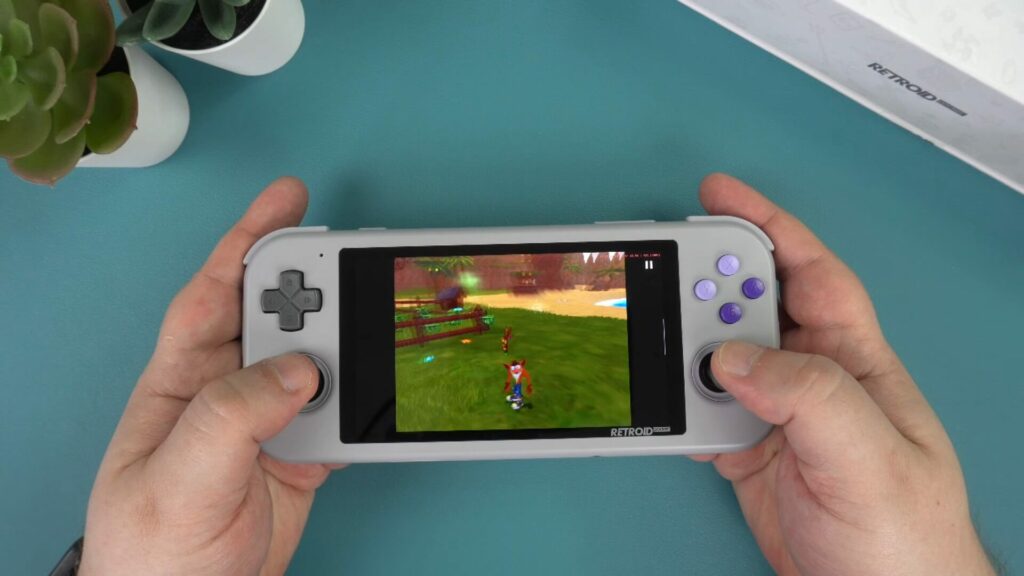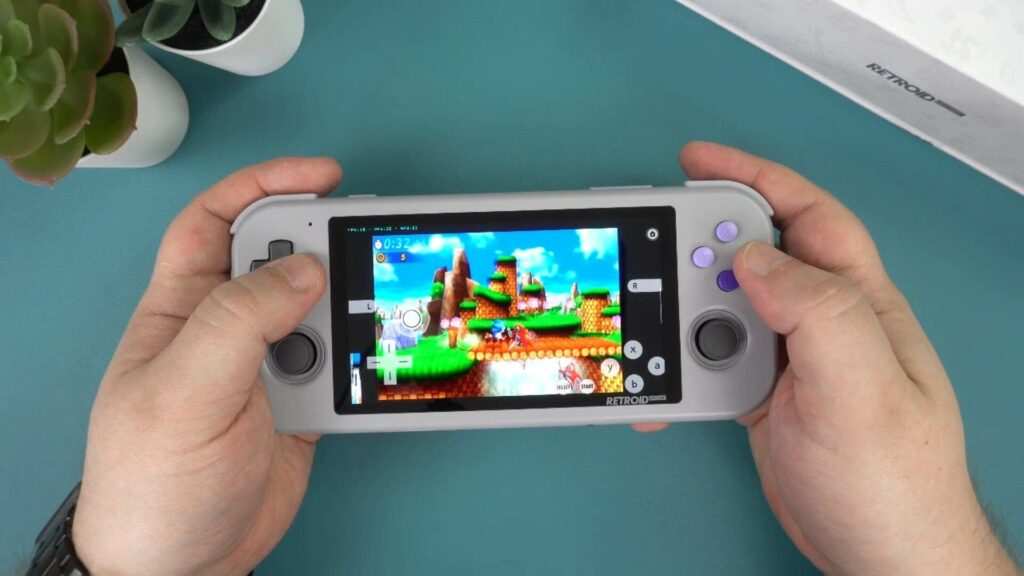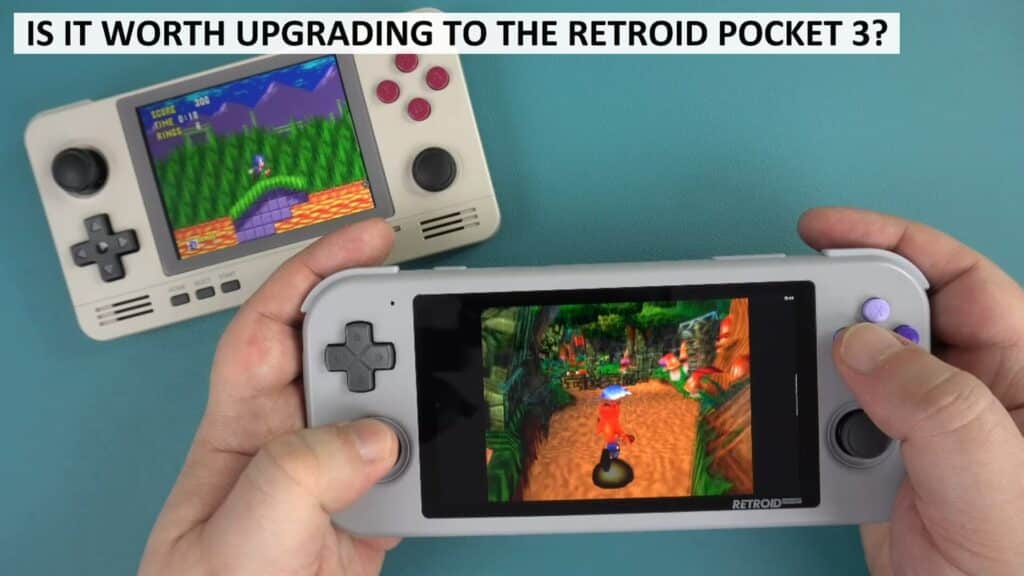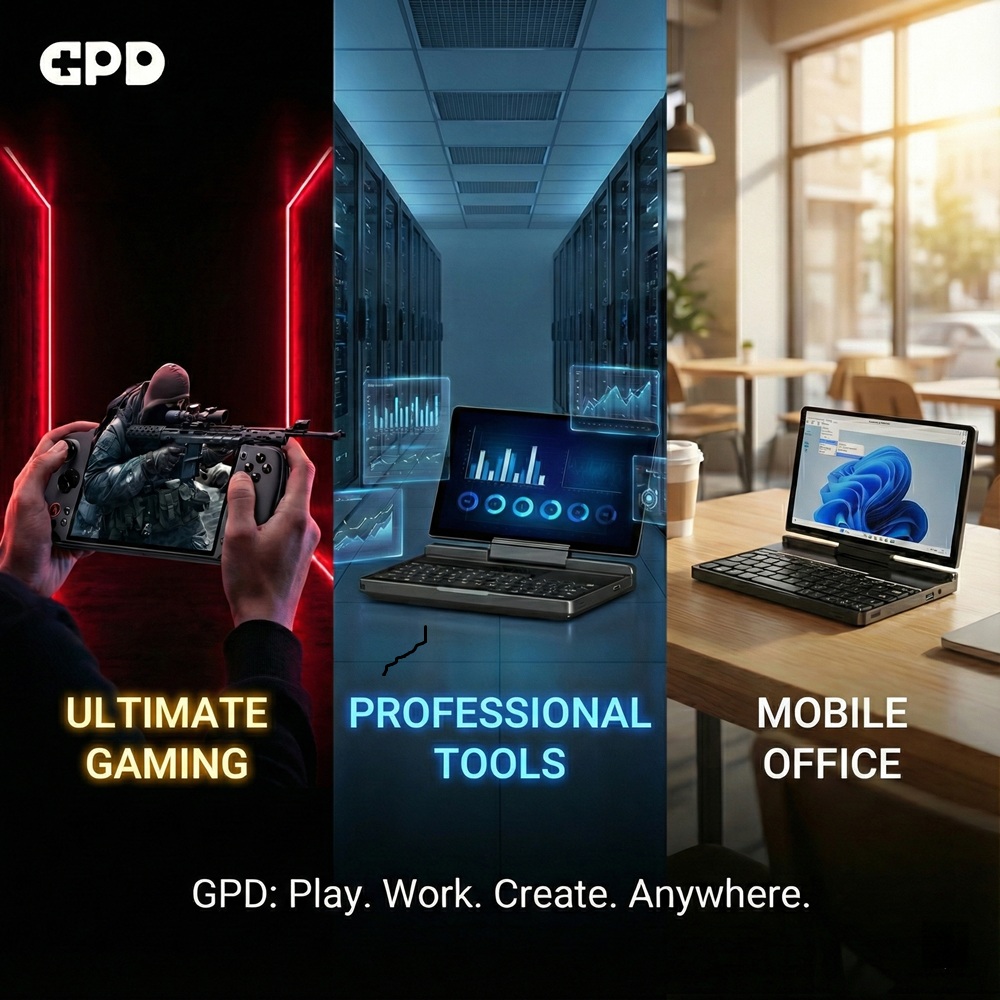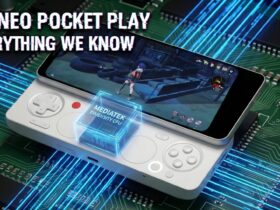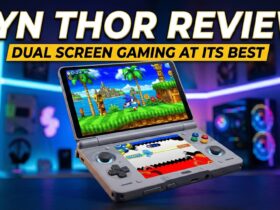Review
-
Design
(5)
-
Build Quality
(5)
-
Display
(4.5)
-
Performance
(4.5)
-
Features
(4.5)
Summary
Some nice additions to this model including screen, redesign, and newer Android OS version.
Overall
4.7User Review
( votes)Pros
- Large 4.7″ touchscreen
- Choice of 2GB or 3GB RAM
- Nicer looking design that its predecessor
- Excellent battery life
Cons
- START & SELECT buttons location are awkward to use while gaming
- An option for more than 32GB internal storage would be great
For our Retroid Pocket 3 review we are comparing the retro gaming handheld to the Retroid Pocket 2+ released earlier this year. Let’s see what the differences are, test some emulators & Android games, and see if it is worth upgrading to if you have the older model.
Retroid Pocket 3 Review Video
Retroid Pocket 3 Unboxing
As always we start with the unboxing. First we have the Retroid Pocket 3 retro gaming handheld which we will take a closer look at shortly.
Next there is a quick start guide which goes over some basic setup and usage. There is a screen protector which you can fit to the display if you wish to. And last but not least is a USB type-A to USB Type-C charge cable.
Retroid Pocket 3 Overview
The Retroid Pocket 3 retro handheld console measures around 7.2 x 3.1 x 0.9 inches (18.4 x 8.1 x 2.4 cm) and weighs around 230 grams. It has a 4.7 inch touchscreen with a rotated 750×1334 resolution. On the front are your standard gaming controls including clickable dual analogue sticks, a D-Pad and four gaming buttons.
On the left side is a volume rocker and the right side has a home button.
On the top are the left and right shoulder and trigger buttons. Along the top are the power button and micro HDMI port . And then there’s the weirdly located SELECT and START buttons, which in my opinion are not in a natural position to easily press while playing a game.
On the bottom is a Micro SD Card slot, the USB Type-C port to connect peripherals to and a 3.5mm headphone port.
Retroid Pocket 2+ & 3 Technical Specifications and Comparison
Much has been made of the lack of differences between the Retroid Pocket 2 Plus and Pocket 3 handheld game consoles so let’s take a closer look at the specs and compare them.
| RETROID POCKET 3 | RETROID POCKET 2+ | |
| CPU | ARM Unisoc Cortex A75 & A55 CPUs, @2.0 and 1.8GHz. | ARM Unisoc Cortex A75 & A55 CPUs, @2.0 and 1.8GHz. |
| GPU | PowerVR GE8300 @800Mhz | PowerVR GE8300 @800Mhz |
| RAM | 2GB or 3GB LPDDR4x | 2GB |
| STORAGE | 32GB EMMC | 32GB EMMC |
| COMMUNICATIONS | WiFi 5 802.11 a/b/g/n/ac Bluetooth 5.0 | WiFi 5 802.11 a/b/g/n/ac Bluetooth 5.0 |
| OS | Android 11 | Android 9 |
| DISPLAY | 4.7″ 16:9 touchscreen, 750×1334 | 3.5” 4:3 touchscreen, 640×480 |
| HDMI Output | YES (Micro HDMI port) | YES (Micro HDMI port) |
| BATTERY* | 4000mAh rechargeable 6 hours on with Antutu benchmark running on loop | 4000mAh rechargeable 6 hours on with Antutu benchmark running on loop |
*The battery test is with Antutu running on a loop. We also left Sonic The Hedgehog on Mega Drive running through the demo mode and the battery lasted over 6 hours. It is a mix of benchmark tests, so it’s not constant full load but it will give a good indication of average use.
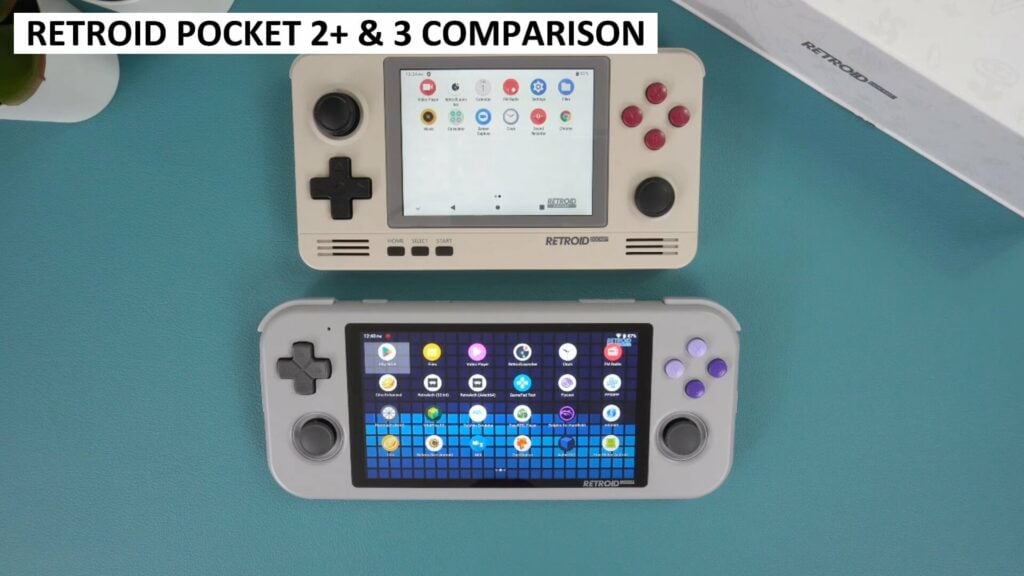
The most noticeable differences are the case and display sizes. The 2+ has a smaller 3.5” 4:3 aspect ratio, 640×480 resolution display and is physically smaller than the Pocket 3.
In our battery tests the Retroid Pocket 2+ got around the same battery life as the Pocket 3, there was about 2% difference in favour of the Pocket 3. Both handheld game consoles have very good battery life!
System Benchmarks
3DMark
We start the system benchmarks with 3DMark which tests the CPU and GPU to see how well they perform together.
The Retroid Pocket 2+ scores 665 and 374 in the two Slingshot benchmarks. The Retroid Pocket 3 scores higher with 705 and 401. Despite them having the same processors the Pocket 3 has a noticeably higher score.
Antutu
Next we are running Antutu which runs a series of tests covering graphics, user experience, media decoding and more.
The Retroid Pocket 2+ scores 153,075, the Pocket 3 is narrowly behind with 141 less score at 152934.
Geekbench
And last but not least we are running Geekbench. This also tests various aspects of the gaming handheld from processor to storage speed.
Both models scored 372 in the single-core speed, the Pocket 2+ scored 714 in multi-core and the Pocket 3 scored higher at 754.
Coming Soon!
In our next video and article we will be comparing Android based gaming consoles together, to see which has the best performance, features, price and other desirables. Subscribe to us on YouTube now, so you don’t miss out on it!
Game Tests
We will try a few native Android games now to see how well they perform.
Call of Duty Mobile
Starting with Call of Duty Mobile. This also gives us the chance to try the built in screen mapping software which works very well. You simply assign the icons to the on-screen area, tap which controller input you want to associate it with and it is ready to go. It works extremely well and definitely gives the GPD XP+ mapping software a run for its money. Top marks here!
Call of Duty Mobile is running on the lower graphics settings, but we are getting good frame rates for the most part, although we did get some lag after dropping the predator missile. Otherwise, it is very playable and easier than when using the screen controls.
Stardew Valley
Next we are testing Stardew Valley which was suggested to us by @nickxcom on Twitter. The game works great with the Android built-in controller so there is no need to do screen mapping. The game itself runs great with no issues at all.
Asphalt 8
This is another game which works with the controller. We played a few races and had some very rare frame drops and stutters during busy scenes. Nothing that was game breaking though.
Cloud Gaming
Forza Horizon 5
For cloud gaming we are trying Forza Horizon 5 on the Xbox Game pass cloud streaming service. We are around 15 metres open space away from the router and are having excellent performance with no frame drops or stream glitches. Apart from some games where text can be hard to read, the whole experience was perfect.
Emulator Tests
The Retroid Pocket 3 is very capable of playing all the classic 8 and 16-bit consoles with no issues at all.
So we will take a look at more recent consoles. Thanks to cyb3rn0id on Instagram who wanted to see us try a Commodore 64 emulator on the handheld.
Saturn Emulation
We start off the emulator tests with SEGA Saturn emulation. Despite being an old console it still requires a decent processor to get full speed on the emulator. We are getting around the 26 FPS area which is quite low. Adding frame skip will definitely make this playable.
VBA Next handheld emulator
Next we have Contra Advance running on VBA Next via RetroArch. We had no issues at all with any of the games we tried on the Pocket 3.
Dreamcast emulation
Dreamcast emulation with Redream is spot on, we tried a number of games and had no issues with frame drops or lags in the sound while playing.
PlayStation emulation
PlayStation emulation is pretty much perfect. You can play just about everything and have no problems at all. You can even increase some settings for better visuals.
DS emulation
There are a few different dual screen emulators available for Android. We are trying one of the free ones called Free DS for Android and the games run great. We got full speed on the games we tried.
Dolphin emulator
And now we check out the Dolphin emulator and it is here where we start to see performance issues with emulators. We are getting around 35 FPS on OpenGL and as low as 15 on Vulkan graphics. There are some games that are playable but it’s not a reason to buy the handheld.
PSP emulation
We are trying the PSP emulator PPSSPP and are getting around 30 FPS on God of War. If you change the frame skipping to 1 then you get around 60FPS with some minor drops now and again. This is a demanding game so other games will run at higher, if not full speeds.
PlayStation 2 emulation
For PlayStation 2 emulation with AetherSX2 we have lowered the upscale multiplier to 0.5 to help increase the performance. Even with these settings we are not getting great performance. It will vary depending on the game you are playing, some will work better than others.
Citra emulator
And just to show it running, we are trying Citra. We say running, but Sonic is barely at jogging pace with around 18 FPS, so it’s far from playable. Some more basic games will run smoother but don’t expect much from it.
Summary
The Retroid Pocket 3 is overall a decent retro gaming handheld. If you already have the Retroid Pocket 2+ then in terms of performance there’s not a massive difference to warrant upgrading. However if you desire a larger screen in a sleek designed retro handheld console with Android 11 then it may be worth considering.
If you are new to the retro gaming handhelds then the Retroid Pocket 3 is definitely the choice between the two. The larger display, more RAM, slightly faster performance, nicer design and great price are all positives. My only annoyance is the location of the SELECT and START buttons located at the top instead of the front. They can be awkward to press if you are using it as a hotkey on RetroArch for example.
You can learn more about and buy the Retroid Pocket 3 here. Use the discount code RP35OFF on the Checkout for 5% off!
And don’t forget to keep an eye on our social media for our next video and article where we compare all the Android handheld gaming consoles together to see which is our favourite of 2022 so far! Who do you think will win? Let us know in the comments!





